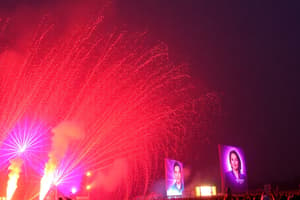Podcast
Questions and Answers
What is the primary function of the component discussed?
What is the primary function of the component discussed?
- To enhance performance under varying loads. (correct)
- To manage resource allocation effectively.
- To regulate temperature within systems.
- To facilitate communication between modules.
Which of the following challenges is associated with its implementation?
Which of the following challenges is associated with its implementation?
- Low efficiency at high operational thresholds.
- High installation costs due to advanced technology.
- Limited compatibility with existing systems. (correct)
- Complexity in user training and adaptation.
What is a significant benefit of utilizing this technology?
What is a significant benefit of utilizing this technology?
- Increased accuracy in data handling.
- Uniform performance across all environments.
- Reduction in required maintenance intervals. (correct)
- Decrease in operational overhead.
What consideration is crucial when selecting this solution?
What consideration is crucial when selecting this solution?
Which of these aspects can affect the overall effectiveness of the system?
Which of these aspects can affect the overall effectiveness of the system?
Flashcards
String
String
A sequence of characters, such as letters, numbers, and symbols, enclosed in double quotes.
Char
Char
A data type that represents a single character, such as a letter or a symbol.
Integer
Integer
A data type that represents a whole number without any decimal places.
Float
Float
Signup and view all the flashcards
Boolean
Boolean
Signup and view all the flashcards
Study Notes
Week 13: Mega Events
- Mega-events are large-scale cultural (commercial and sporting) events with a dramatic character, mass appeal, and international significance.
- These events are distinctive, often considered "out-of-the-ordinary" compared to typical events.
- The term "mega-event" emerged recently, first used in 1987 at a tourism experts' conference in Calgary.
- Mega-events are evaluated based on four characteristics: visitor attractiveness, mediated reach, cost, and transformative impact.
- Mega-events can be categorized as cultural, political, or sporting, based on their global audience and significance.
Defining Mega Events
- Mega-events are large-scale, cultural (including commercial and sporting), events with significant international appeal.
Class Content: Mega Events
- Defining Mega Events: (slide 3)
- Significance of mega-events: (slide 4)
- Pros and cons of mega-events: (slide 5)
- Case studies: Astana EXPO-2017, Olympic Games (slide 6)
- Mega-event periods: (slide 7)
- Mega-event tourism: (slide 8)
Significance of Mega Events
- Mega-events are evaluated based on four factors: visitor attractiveness, the reach of the event, associated costs, and transformative impact.
Mega Events' Categories
- Cultural: Large-scale cultural events that often have a national and international profile. They commonly have a larger scale than the average sporting fixture.
- Political: Mega-events that have implications for international relations, diplomacy, or global policy. They often attract significant media coverage and public interest, as they hold political importance. (e.g. G7, G20, or COP summits).
- Sporting: Large-scale sporting competitions and championships that gain significant global attention. They often have a massive impact on host cities and countries and require significant planning and investment.
Pros of Mega Events
- Economic Boost:
- Increased tourism (filling hotels, restaurants, attractions).
- Job creation (construction, hospitality, security, event related).
- Infrastructure development (stadiums, transportation, public spaces).
- Attracting foreign investment and stimulating urban renewal.
- Social Benefits:
- Civic pride and community unity.
- Increased social interaction among people.
- Global spotlight and showcasing culture/hospitality.
Cons of Mega Events
- Financial Risks:
- Cost overruns: Mega events are often more expensive than their initial budget.
- Uncertain returns: Economic benefits are not always guaranteed.
- Opportunity costs: Important diversion of funding from other essential public services.
Mega Events' Periods
- Pre-Event Period: Bidding period, organizational work
- Event Period: Organizational work
- Post-Event Period: Analysis period, report generation
Pre-Mega Event Period
- Guarantees from the host city to the event owner.
- Host city profile: demographic, environmental, economic, political information.
- Event content plans
- Venue, accommodation, and transport plans.
- Associated celebratory and educational event plans.
Post-Event Period
- Immediate Post-Event (0-2yrs): Temporary drop in employment, market oversaturation.
- Intermediate Post-Event (2-5yrs): Using the underutilized infrastructure, planning further actions using the event facilities.
- Legacy Period (5+ years): Long-term benefits of event (urban regeneration, local economy, improved quality of life). Potential challenges: "white elephant" problem (expensive venues). Requires careful management of public perception and accountability.
Case Study: Astana Expo 2017
- Theme: Future Energy
- 115 countries engaged
- 22 international organizations
- 40 heads of state, 72 foreign ministers attended.
- Took place in Astana (Kazakhstan) from June 10th to September 10th, 2017.
Pre-Event Period (Astana Expo):
- Idea Creation: Idea of Expo was proposed by Kazakh President.
- Theme selection: Promoted green energy, alternative energy, sustainable energy.
- Infrastructure: Dedicated Expo site (174 hectares); exhibition pavilions, conference center, residential areas and iconic sphere.
Event Period (Astana Expo):
- Diverse Program: 3500 events, forums, international summits; 28 heads of state/100+ heads of government/ministers;
- Future Energy Forum: Gathered international scientists, scholars and policymakers focused on sustainable energy. Series of pre-Expo meetings and conferences during the Expo.
Post-Event Period (Astana Expo):
- Class assignment: Fishbowl debate: Expo 2017 Astana, triumph of vision, or white elephant? (Student debate/discussion activity)
Studying That Suits You
Use AI to generate personalized quizzes and flashcards to suit your learning preferences.




